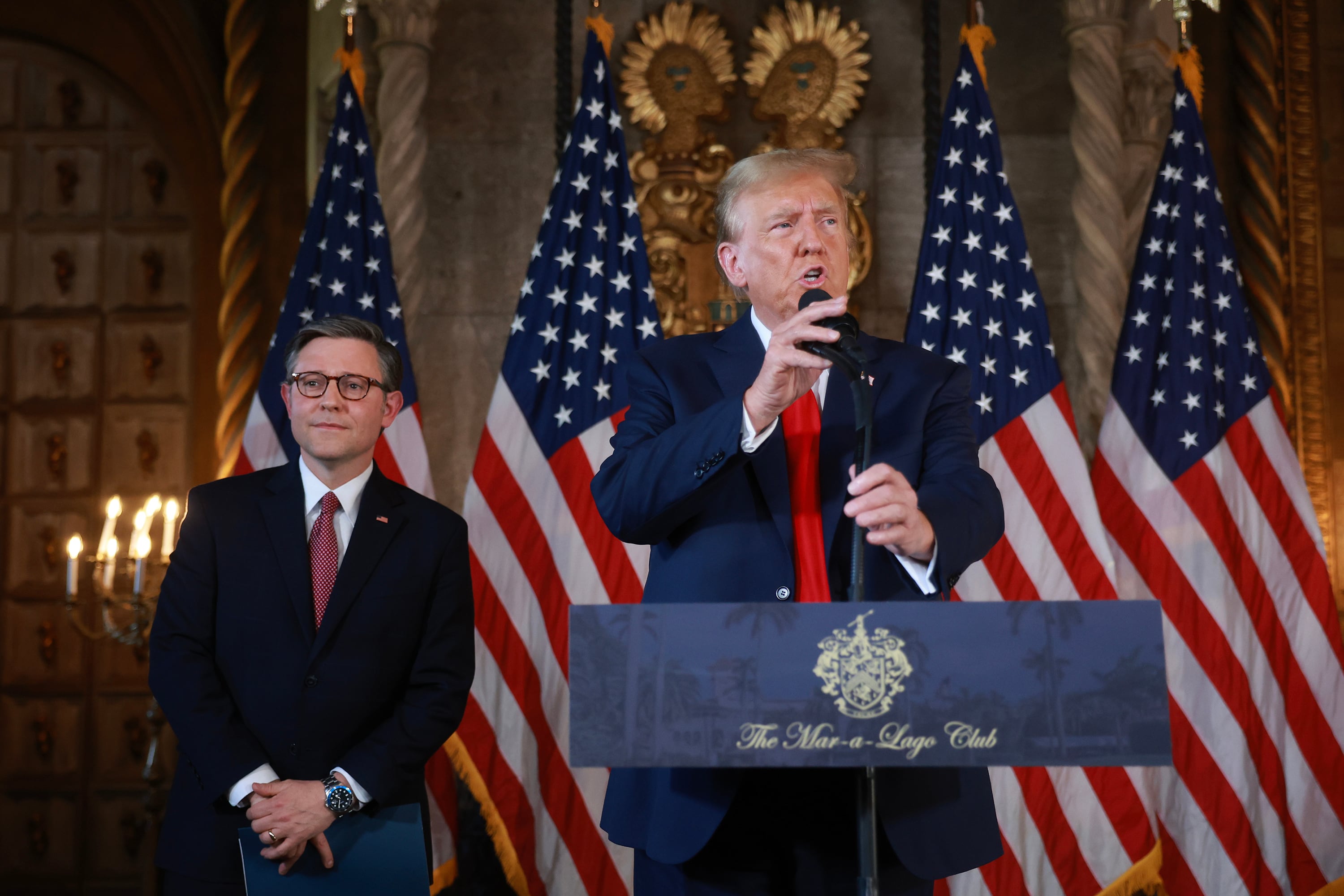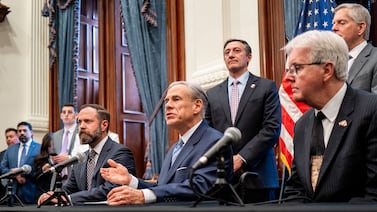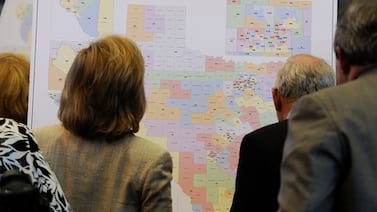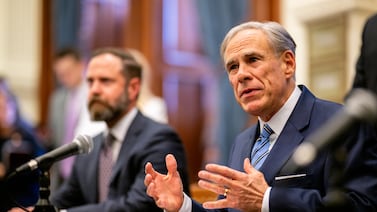Votebeat is a nonprofit news organization reporting on voting access and election administration across the U.S. A version of this post was originally distributed in Votebeat’s free weekly newsletter. Sign up to get future editions, including the latest reporting from Votebeat bureaus and curated news from other publications, delivered to your inbox every Saturday.
After President Donald Trump and House Speaker Mike Johnson last week advocated for a bill banning noncitizen voting, the news coverage made clear that it’s already illegal for noncitizens to vote and, crucially, that it isn’t a real problem.
Trump is still very eager to relitigate 2020, and Johnson’s trip to Florida to promote the scheme was widely received as the kind of reciprocal gesture we’ve seen before. The speaker, who’s struggling to maintain conservative support for his leadership job, got a photo with Trump, and Trump gets to use Johnson’s credibility to bolster the same debunked arguments he’s been making since his loss. USA Today reported that a person close to the planning said it was intended as an encouragement for other Republican officials to “get on the team” on the issue of noncitizen voting.
To understand the false election claims that are the basis for the legislation Johnson and Trump announced, check out the thorough fact-checking articles like CNN’s. Beyond that, there’s not much to say about the substance of a bill that doesn’t exist and is not meant to achieve a real purpose. But there is much more to understand about the historical context behind Trump’s push, which helps you see it for what it is.
Fear-mongering over noncitizen voting is among the oldest tactics in American electoral politics. The Republican Party is not trying to assemble a squad of noncitizen-voting hardliners; it is fomenting this fear to anger its base into turning out. Parties have done it dozens of times in our history, even before noncitizen voting was illegal in this country.
A sampling:
- Antagonism toward those born on foreign soil for their perceived transience and poverty has been influencing American public policy since our earliest days as a nation.
- In the 1800s, states began to enact residency and citizenship requirements where there were none before. For example, In 1854, fearing waves of immigration to southern Louisiana, the state enacted a two-year residency requirement. In 1850, Maryland enacted a six-month residency requirement aimed almost exclusively at excluding the immigrant population in Baltimore.
- World War I, and the xenophobia it inspired, led to states banning anyone without citizenship from voting in the 1910s and ‘20s. Arkansas was the very last state to ban noncitizens from participating in elections in 1926. That made the 1928 presidential election the first in which no state allowed noncitizens to participate.
- In the 1930s, after an economic collapse, hostility toward poor people and immigrants receiving relief aid led to wide talk of disenfranchisement. In Kansas, agricultural workers were told that if they voted, they would be removed from the “transient relief” rolls. The existence of poll taxes, though, made it unlikely that the poor would be able to vote in most places, anyway.
- Immigration plummeted during World War II, not reviving until the ‘60s. By then, the Civil Rights era was in full swing. This led to a lasting crackdown on non-white voters across the country that frequently involved accusations of fraudulent voting by noncitizens. This didn’t happen just in the Deep South. Places like Kentucky, California, and Indiana also tightened registration requirements and residency periods during this time.
- Governors of large red states have, in recent decades, made headlines for claiming to have long lists of noncitizens registered to vote. In every circumstance, the lists contained thousands of incorrectly flagged eligible voters, and the claims were largely retracted. See: Texas and Florida.
- It’s, of course, not even new for Trump to raise the specter of noncitizen voting. He has been going on about this since he first ran for president in 2016. His own presidential commission aimed at rooting out voter fraud, based on his false claim that he lost the popular vote in 2016 because of noncitizen voting, disbanded after two meetings.
- In 2017, Trump claimed that his friend, professional golfer Bernhard Langer, was prevented from casting a ballot due to a long line of what he assumed to be noncitizen voters. Langer himself wasn’t a citizen, and this incident never happened.
So not only is it false to say that noncitizen voting is a problem, it is also completely unoriginal. It is the same rhetoric people have used to stoke fear in this country for 200 years.
It is not logical that an immigrant who’s ineligible to vote would risk jail or deportation to cast a single ballot in an election. The cost-benefit analysis for such a vulnerable person doesn’t make any sense. The reason bans on noncitizen voting have never caught on as federal legislation is that there is simply nothing to legislate.
Jessica Huseman is Votebeat’s editorial director and is based in Dallas. Contact Jessica at jhuseman@votebeat.org.






